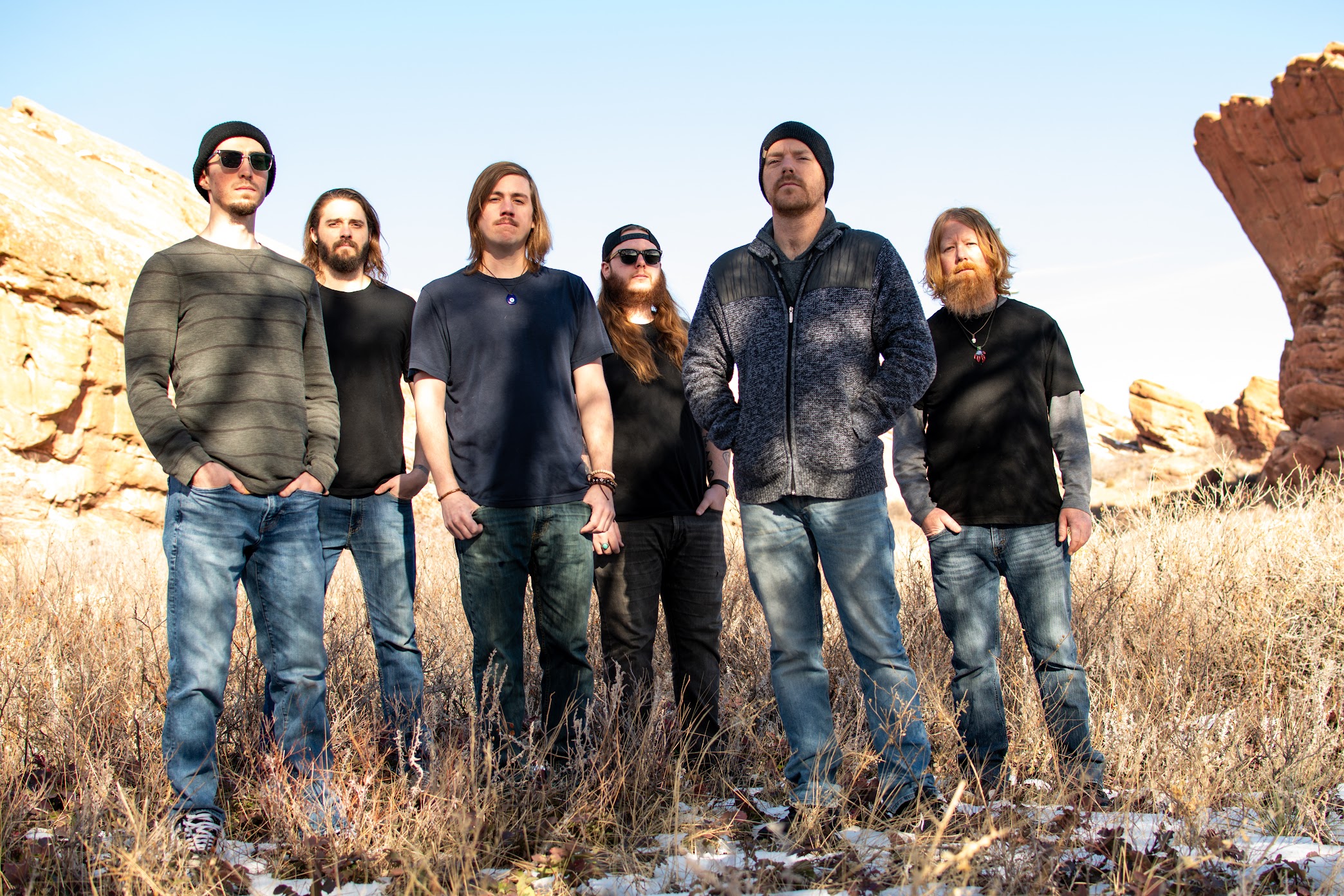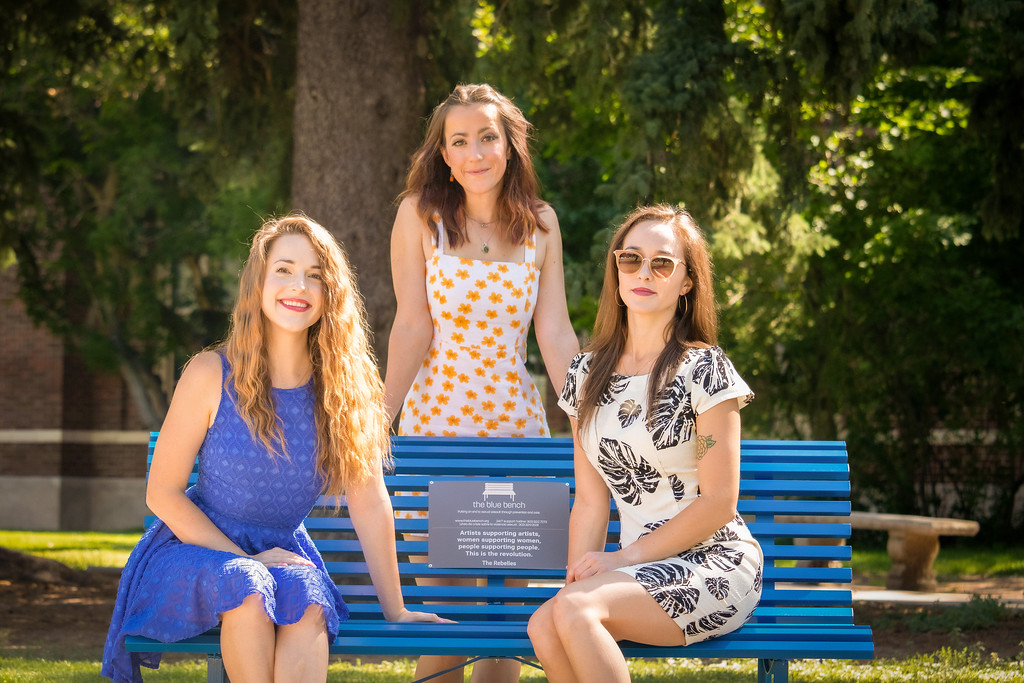In recent years, the me too. movement has gained momentum and garnered international attention, sparking conversations nationwide on the subject of sexual assault. As a result, survivors of sexual assault around the world are now more willing than ever to report their experiences – leading to a 7% increase in reporting in the U.S. While this increase has helped to raise awareness and spark educational conversations around the topic, the media coverage of sexual assault allegations, both nationally and locally, can trigger strong emotional responses from survivors. Fortunately, in Denver, survivors don’t have to face their experiences alone. Founded in 1983, The Blue Bench strives to prevent sexual assault while also providing a network of support for survivors.
Originally started as a crisis hotline, the organization has grown considerably throughout its history. “The Blue Bench is metro Denver’s only comprehensive sexual assault prevention and survivor support center,” explained The Blue Bench’s director of communications, David Proper.
The organization offers a variety of support options, including individual and group therapies, 24/7 crisis intervention therapies and workshops specifically for the loved ones of survivors, just to name a few. Ultimately, The Blue Bench is an excellent resource for locals who have experienced any form of sexual violence.
“Experiencing a sexual assault can be overwhelming, confusing and frightening. The Blue Bench is here to meet survivors where they are at in their healing process and to accompany them on that healing journey, whether that is through therapy or immediate crisis intervention services like our 24/7 hotline. Additionally, navigating the various options available to survivors can be difficult and we are here to offer support and assistance,” said Proper.
The organization aims to provide resources that meet the unique needs of every individual survivor. Beginning in the immediate aftermath of the assault, The Blue Bench works to educate survivors on what options they have – from reporting to crisis counseling.
Reporting Support
In the aftermath of an assault, survivors may experience a variety of emotions. As a result, the path to healing for each individual person can vary wildly. “Individual reactions to trauma are diverse,” Proper said. “We want survivors of sexual violence to know that that their reactions are valid and normal ways to respond to what happened to them.”
Often, the experience is overwhelming. Sometimes, obtaining a medical exam and filing a report is the first step on the journey to healing. “Sometimes, someone may feel overwhelmed by the idea of beginning their healing process or knowing where to start, and the SANE exam can be that first step for some people. It can be one way to start caring for oneself,” said The Blue Bench’s Director of Client Services Jacquie Aamodt, LCSW.
In Colorado, the option to obtain a Sexual Assault Nurse Examiner (SANE) exam is available to individuals over the age of 18, with the exception of at-risk elders. More commonly known as a rape kit, a SANE exam is conducted at the hospital following a sexual assault and can be valuable to individuals who choose to pursue legal action after their experience.
READ: Denver-based Film “Erased” Tackles Drug-Facilitated Sexual Assault
However, while obtaining a SANE exam can prove to be valuable for some survivors, it may not be the right decision for everyone. “If someone was hesitant about obtaining an exam I would want them to know that that is a perfectly valid decision,” said Aamodt. “For some, the idea of completing a SANE may be too overwhelming; especially as they try to grapple with making sense of their recent experience.”
“Ultimately it is up to the survivor,” Aamodt elaborated. “So, from a therapeutic standpoint, honoring the survivor’s choice is what is most beneficial.” Regardless of the specific circumstance, only the survivor can make the right choice for themselves, but that doesn’t mean they have to make their decision alone. The Blue Bench’s hotline operates 24/7, guaranteeing that there is always a resource to answer questions and thoroughly discuss options.
For those that choose to pursue this course of action, The Blue Bench promises to be there to assist in whatever capacity it can. “If a survivor chooses to seek medical care following an assault, The Blue Bench offers immediate support at the hospital 24 hours a day,” Proper explained. “A hospital advocate can meet the survivor at the hospital, provide initial support and help them understand and consider their options and available resources.”
Following the exam, there are a few options for reporting the experience. The first option is to file a medical report with law enforcement. This type of report does not require the individual to participate in the criminal justice system, however, the information will be released to law enforcement along with identifying information about the survivor, such as their name. With this type of report, the survivor can choose to have evidence tested as well as whether or not they would like there to be an investigation into the incident.
Another option is to release the information to law enforcement anonymously. In this case, the report will be filed as evidence without identifying information about the survivor. With this method of reporting, no evidence will be tested and no investigation will be pursued without the survivor’s consent.
While SANE exams are a time-sensitive option, Aamodt noted that the decision to pursue legal action is not one that needs to be made immediately. “[It is important for survivors to] know that they can take things one step at a time, at whatever pace is best for them.”
Therapeutic Support
As with any trauma, the first step on the healing journey after experiencing sexual violence can be different for everyone. While one person may choose to receive medical care immediately after their assault, other survivors may wait before they decide to seek therapy or pursue other options.
When it comes to taking that first step, Aamodt has some advice: “First and foremost, to listen to their heart and trust that they know what is best for them.”
The options for pursuing healing are diverse. Aside from obtaining a medical exam and pursuing legal action, survivors of assault can access a variety of forms of therapy. For some, trauma-informed therapies centered around things like music, art or yoga may feel like an easier way to receive therapeutic support. For others, things like EMDR, psychotherapy typically used to treat PTSD, might be a better fit.
When it comes to trauma therapy, there are a lot of options. With the understanding that navigating these options can be overwhelming for survivors, The Blue Bench also offers guidance over the phone to help individuals determine what therapies might benefit them. From there, survivors can find a mental health professional they feel good about seeing.
“In considering what would be a good fit, it may be helpful to ensure that the mental health professional is trauma-informed – that they understand the impact of trauma on the individual, as well as the dynamics associated with sexual trauma. Ultimately the survivor needs to feel that it is a good fit, that the [mental health] professional goes at a pace that is comfortable to the survivor, that they believe the survivor, ensure them that the assault is not their fault, and treat them with positive regard,” explained Aamodt.
In the aftermath of an assault, there’s clearly quite a bit for survivors to think about. To aid in navigating all of it, The Blue Bench connects survivors with case managers. “With case management, we help survivors navigate the fallout of an assault, ensure that the survivor is aware of their options, and advocate for them when needed,” Proper elaborated. “This could look many different ways. For example, our case managers connect survivors with community resources, accompany them to appointments related to the assault, and so much more.”
Education and Prevention
Another way that The Blue Bench aids survivors is through education. “Our programs are driven by the most up-to-date research in the field of sexual violence prevention and include programs for middle-school-aged youth, high-school-aged youth, adults, and youth-serving professionals,” Proper explained.
The Blue Bench partners with local organizations and schools to help spread the reach of their educational efforts. The curricula for these programs include topics you’d expect – such as what consent and healthy relationships look like in practice – as well as topics that might get overlooked, like tools that individuals can use to intervene in risky or sexually violent situations.
These programs are an excellent opportunity for members of the community to learn more about sexual assault – but more importantly, they serve as a starting point for conversations about addressing the issue. Along with education, The Blue Bench’s prevention programming encourages individuals to engage in conversations that challenge social norms that lead to blaming survivors or minimizing the impact of survivor experiences.
The organization even extends its reach to the service industry through Safe Bars. This program helps train staff in bars, music venues and other similar establishments on how to recognize and prevent sexual assault, something that is especially important due to the common misconception that if an individual is drinking and assaulted, then the assault is their fault.
“Alcohol is a weapon that some perpetrators use to control their victim and render them helpless. As part of their plan, an assailant may identify an individual who is drunk or encourage the victim to use alcohol. Alcohol is not a cause of rape; it is only one of many tools that perpetrators use. Also, both individuals involved must actively consent to sexual activity. A person is incapable of consent if they are incapacitated in any way or are unconscious,” said Proper.
Not only does the organization work to spread awareness in order to prevent sexual assault, but it also hosts workshops to help educate friends and family on how they can be a better support network. “[This program] is a great way to get tools and tips for supporting the survivor in their life, as well as process the impact of trauma on them as a secondary survivor,” Aamodt explained.
While it started as a single phone number, The Blue Bench has evolved into Denver’s greatest resource for survivors of sexual assault and those who wish to prevent it.
For more information about Blue Bench, go here or contact their 24/7 hotline by calling 303-322-7273 or en español 303-329-0031.






